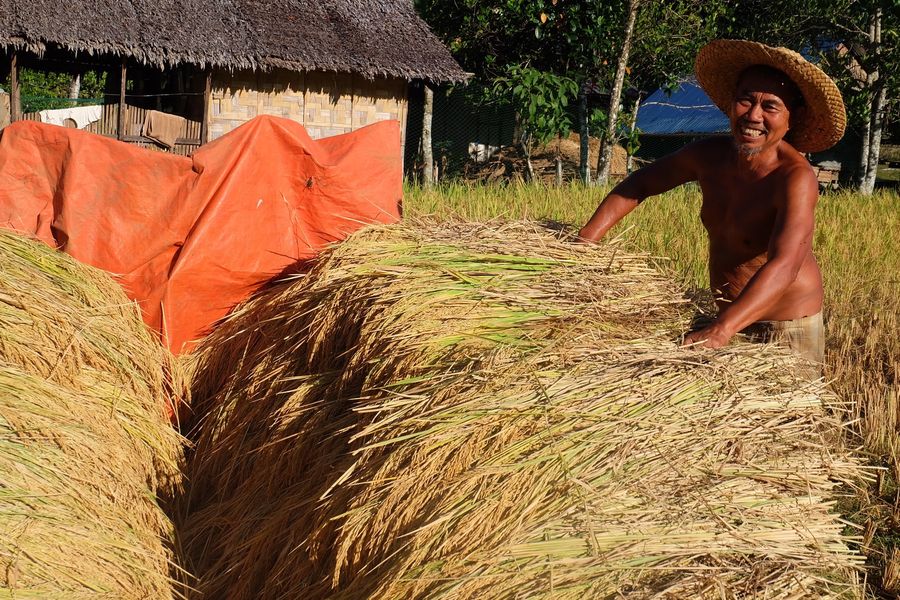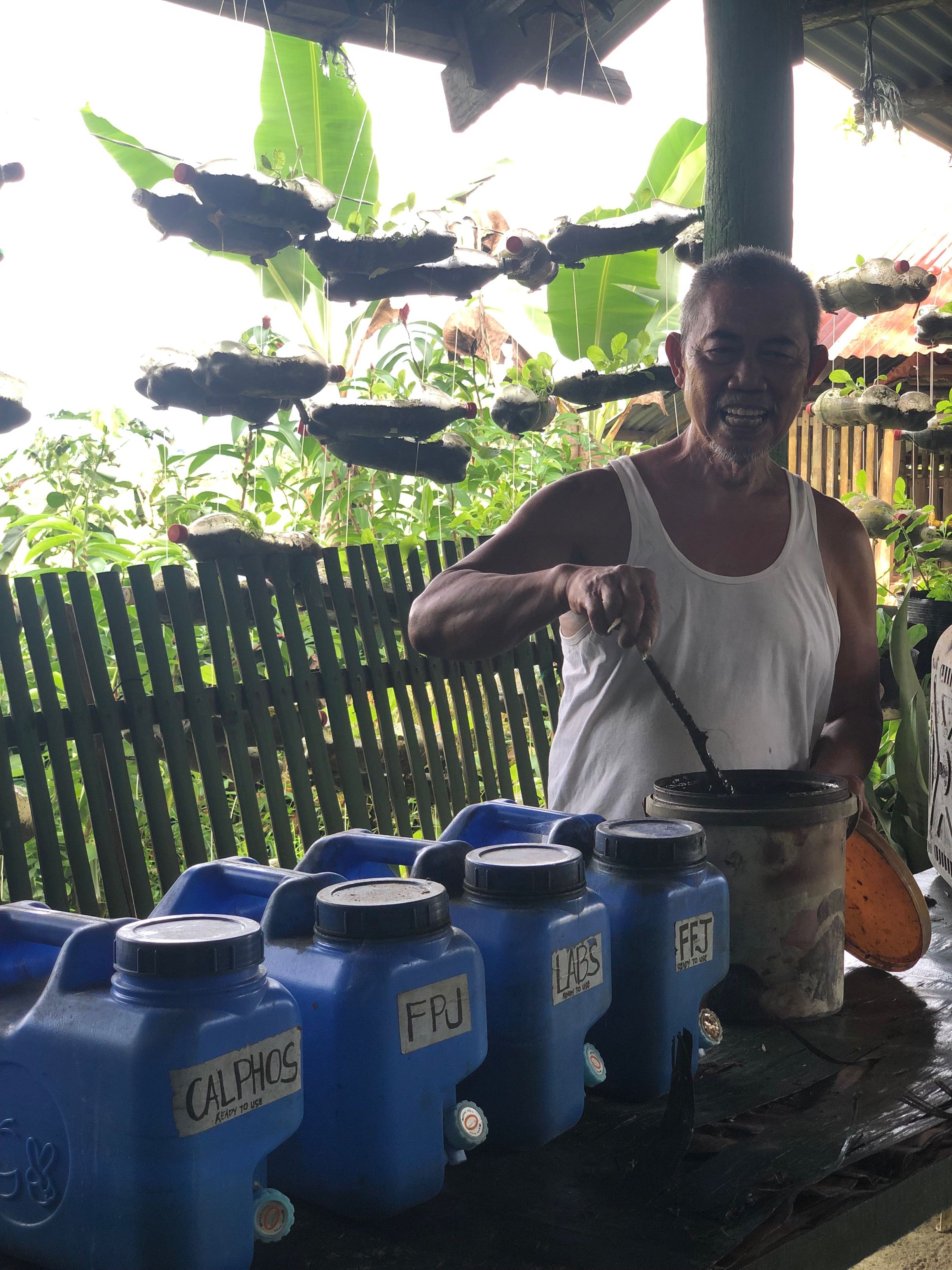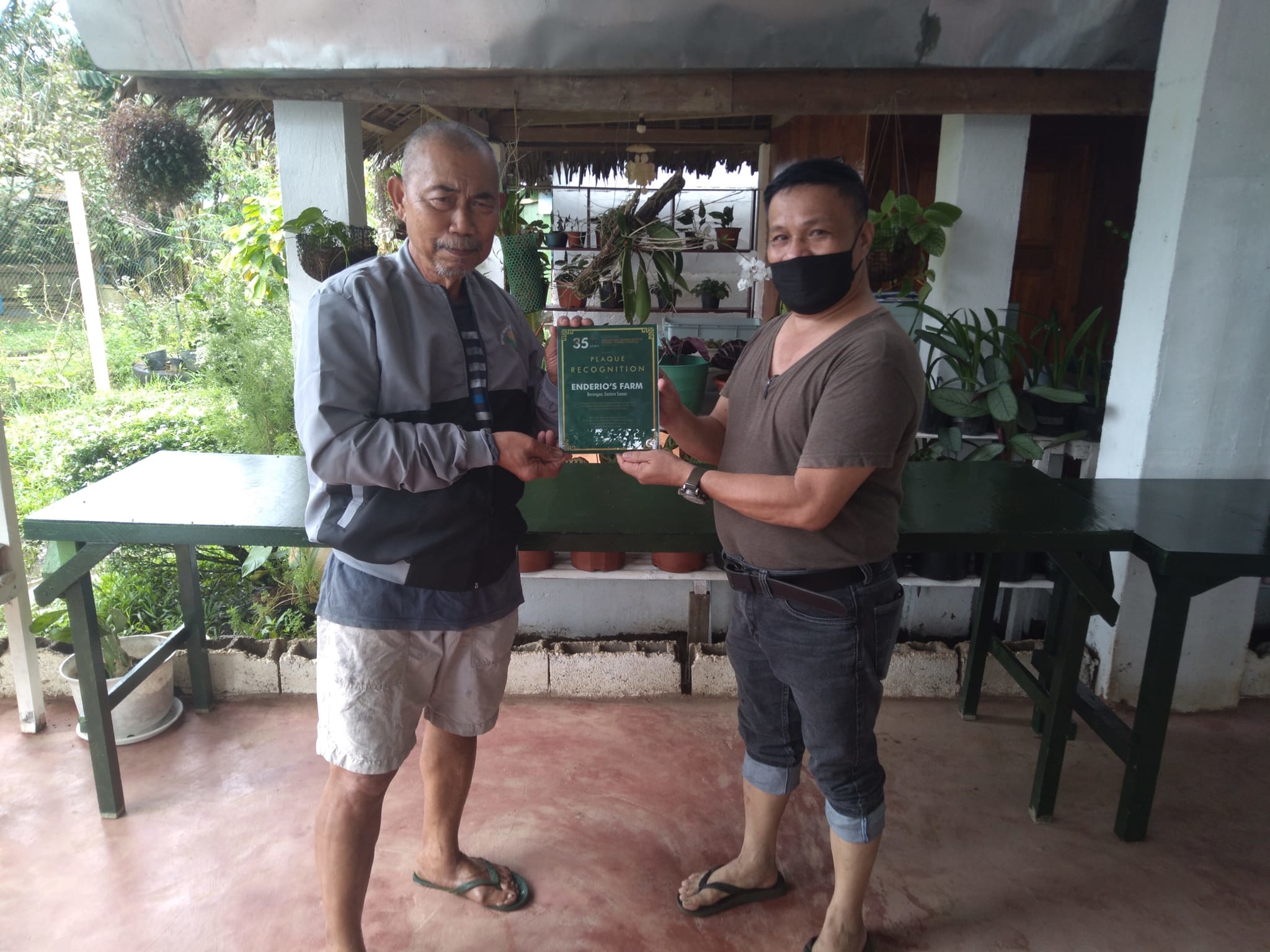Communities adopting climate-smart farming practices in the Philippines
Invest in local capabilities
Devolve decision making
Build understanding
Collaborative action and investment
Organization: CATHOLIC RELIEF SERVICES
Donor: USAID - PHILIPPINES
Beneficiaries: 77000
In the east of the Philippines, people are embracing sustainable farming as a means to improve their economic situation and become more resilient against the increasing threats posed by climate change.
Borongan City is one of the most vulnerable cities in the Philippines to the hazards of climate change. The capital of Eastern Samar, Borongan directly faces the Pacific Ocean and is regularly impacted by typhoons, floods, and storm surges. Climate scientists predict that these extreme weather events will become more frequent and intense in the coming years as global average temperatures continue to increase and sea levels rise. Particularly vulnerable to these risks are the large number of farmers and fishermen in the region.
The five-year USAID funded Climate Resilient Cities (CRC) project seeks to enhance the adaptive capacities of cities in various parts of the Philippines – including Borongan city. The project is implemented by a consortium of Philippines and International organizations, led by Catholic Relief Services (CRS). CRC builds resilience by supporting nature-based solutions and harnessing the power of climate change data and information for planning.
The approach of the project is grounded in the principles of locally led adaptation: all activities are executed in accompaniment with local organizations and local government, helping to ensure that the knowledge and skills gained, and improved systems developed, are sustainable. In addition, CRC supports the city government of Borongan to access climate finance that will fund resilience projects identified in their local climate change action plan.
The story of Enderio Maning demonstrates how the project is making a difference. Following his early retirement from working as a driver, Enderio was on the lookout for other ways to earn a living. Elected as a barangay councilor, he began coordinating with the City Agriculture Office (CAO)’s programs for farmers in his community, which is from where his interest in farming began.
From sitting in on CAO training, he learned skills and techniques that inspired him to build an eggplant and lettuce farm in his own backyard. A father of seven, Maning’s priority was to supplement his family’s diet.
“When we adopt climate-smart farming, we were able to sustain the food needs of our family and gain increased income,” says Maning, whose success far exceeded this initial goal.
The result is 'Enderio’s Farm,' an organic farming business and training center.

Photo Credit: Engr. Martin Reynoso
As their farm grew, Maning and his wife began a partnership with the Agricultural Training Institute (ATI) to gain accreditation for their farm as a School for Practical Agriculture. Through that partnership, Maning gained more skills as a farmer, including learning about organic farming and how to diversify his crops to adapt to climate change impacts.
“When it’s the rainy season, we plant rice. We also have a deep rain-collection canal, where we harvest water to be used during the dry season. When it’s dry season, we plant vegetables,” Maning explains. “With the farm, we have everything we need, from rice to eggs, to chicken or pork, to vegetables. We even produce our own fertilizer using animal manure."
With the grant from ATI, Maning was able to build a training facility on his farm. Enderio’s Farm today hosts ATI trainings for youth, women, and people with disabilities on organic farming and urban gardening. To date, 400 farmers from across different municipalities have taken advantage of these trainings. Maning enjoys teaching other farmers, along with the trainers from ATI.
“I teach them that it’s always important to get to know the land they’re tilling. When it’s healthy, the plant that will grow in it will be healthy. The animals and people eating them will be healthy as well."

Photo Credit: Perlita Gacutno for CRS
Through the CRC Project, CRS will partner with CAO and ATI to create a Climate Smart Farm Business School that scales Maning’s initiative. The school, which aims to assist over 1,300 farmers drawn from 28 different agriculture barangays, will support farmers’ awareness and understanding of climate change impacts and equip them with strategies to adapt and/or reduce their vulnerability, such as climate-smart soil and water conservation practices.
For Maning, organic farming, for which he uses natural farm inputs such as fermented plant juice and animal manure as fertilizer and crop rotation, is the best way to nourish the soil, maximize biological activity, and maintain long-term soil health. Aside from feeding his family with healthy food, he and his wife also get to sell their harvests in their community, making healthy organic food accessible to their fellow residents of Borongan City. The whole family also promotes organic farming, opening their farm to children to be involved in the hands-on activity of transplanting seedlings.
“We make it a fun activity to let them see the beauty of agriculture,” said Maning on his Facebook page.

Photo credit: CRS Philippines